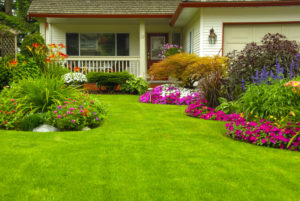A pool is a great addition to any home. It provides a place to cool off on hot summer days, host pool parties, and exercise. But before you can enjoy your new pool, you need to build it. Here are five tips you need to know when building a pool.
Choose the Right Location
The first step in building a pool is choosing the right location. Consider factors such as the size of your yard, the climate, and whether or not you want an in-ground or above-ground pool. Once you’ve chosen the perfect spot for it, you can move on to the next step.
Remember that not all yards can accommodate a pool. You need to have enough space for the pool, and room to install fencing and other security features. Of course, this depends on the size of the pool and the layout of your yard. There is no hard rule determining how big a yard should be to accommodate a pool. Although it varies, most experts suggest a pool should cover less than one-third of your yard. So, for example, you can have a backyard pool that’s 600 square feet or smaller for a 1,800-foot space.
Plan Your Pool Design

When designing your pool, it’s essential to think about the type of pool you want and the layout of your yard. If you’re not sure what type of pool to choose, consult a professional swimming pool builder. They can help you choose the right pool for your needs and budget.
When it comes to the layout of your yard, make sure to leave enough room for the pool and deck. You’ll also need to consider the location of the house, trees, and other features in your yard. This will help you determine the best location for your pool.
Once you’ve chosen the right location and design for your pool, it’s time to start construction!
Get the Proper Permits
Before starting construction on your pool, ensure you have all the proper permits. This is because pools are considered structures, and as such, they must meet certain building codes and standards.
The most common permits for pools are building permits and zoning permits. A building permit is required to ensure that the pool is built safely and meets all local building codes. A zoning permit is required to make sure the pool doesn’t violate any zoning regulations.
In some cases, a construction permit may also be needed. This permit is typically issued when there are special construction requirements that need to be met. For example, if you’re installing a pool in a residential area, you may need a construction permit to ensure that the pool meets the setback requirements.
Failure to get the proper permits can result in fines or construction delays, so it’s essential to do your research beforehand.
Hire a Qualified Contractor
Once you have all the necessary permits, it’s time to find a qualified contractor to build your pool. This is an essential procedure because a poorly built pool can be dangerous and expensive to fix. Make sure to get multiple bids from different contractors and check their references before making your final decision.
When choosing a contractor to build your pool, it’s essential to do your research. Ask around for recommendations and check the contractor’s references. Once you’ve narrowed your choices, interview the contractors and ask them about their experience with building pools. Be sure to ask about their safety record and how they plan to handle any problems during construction.
Finally, make sure the contractor is licensed and insured. This will protect you in the event of an accident or construction delay.
Select the Right Materials
The materials you use for your pool will affect its appearance, durability, and maintenance requirements. There are many different types of materials available, so it’s essential to do your research beforehand and select the ones that are right for your needs. Some common pool materials include concrete, fiberglass, vinyl liner, and gunite. Each material has its advantages and disadvantages, so it’s essential to select the one best suited to your needs.
- Concrete is popular for pools because it is durable and can be customized to match any color or style. However, concrete is expensive and requires regular maintenance to keep it looking its best.
- Fiberglass is another popular option because it is affordable and easy to maintain. However, fiberglass pools are not as customizable as concrete pools.
- Vinyl liner pools are the most affordable option but are the most difficult to maintain. Vinyl liners must be replaced every few years, and the entire pool must be replaced when the vinyl liners are damaged.
- Gunite pools are the most expensive option but are also the most durable. Gunite pools can last for decades with minimal maintenance.
Building a pool is a big project but following these five tips will help ensure that it goes smoothly. Remember to choose the right location, plan your pool design, get the proper permits, hire a qualified contractor, and select the right materials. By doing so, you’ll be able to enjoy your new pool for years to come!













